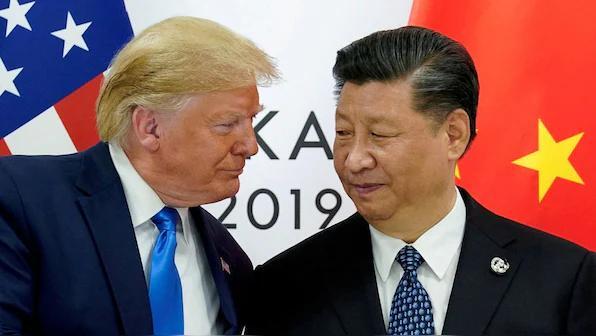
China Refuses to Join Denuclearisation Talks with US & Russia
In a recent development that has sparked both surprise and concern, China has refused to join trilateral denuclearisation talks with the United States and Russia. The decision was announced by Chinese Foreign Ministry Spokesperson Guo Jiakun, who stated that the expectation of China’s participation in such talks was “neither reasonable nor realistic”.
The news comes as a result of US President Donald Trump’s call for China to join future denuclearisation talks between the US and Russia. Trump’s proposal was met with skepticism by Beijing, which has consistently maintained that its nuclear capabilities are vastly different from those of the US and Russia.
According to Guo Jiakun, China’s decision is rooted in the significant disparities between its nuclear capabilities and those of the US and Russia. He emphasized that China and the US are not at the same level in terms of nuclear capabilities, a sentiment that has been echoed by Chinese officials in the past.
China’s decision to opt out of denuclearisation talks has sparked concerns about the future of global nuclear non-proliferation efforts. The US and Russia have been engaged in bilateral talks aimed at reducing their nuclear arsenals and preventing the spread of nuclear weapons to other countries.
China’s refusal to participate in these talks has raised questions about the effectiveness of the global nuclear non-proliferation regime. The country’s nuclear capabilities have grown significantly in recent years, with the development of new intercontinental ballistic missiles and submarine-launched ballistic missiles.
Despite China’s rejection of denuclearisation talks, both the US and Russia have reiterated their commitment to reducing their nuclear arsenals. The two countries have been engaged in bilateral talks aimed at reducing their nuclear stockpiles and preventing the spread of nuclear weapons to other countries.
China’s decision to opt out of denuclearisation talks has also sparked concerns about the country’s nuclear ambitions. Beijing has consistently maintained that its nuclear capabilities are defensive in nature and are aimed at deterring potential threats from other countries.
However, China’s rapid military modernization and its growing nuclear capabilities have raised concerns about its intentions. The country’s military spending has grown significantly in recent years, with a focus on developing new technologies and systems.
In conclusion, China’s refusal to join denuclearisation talks with the US and Russia is a significant development that has sparked both surprise and concern. The country’s decision is rooted in its concerns about the significant disparities between its nuclear capabilities and those of the US and Russia.
While the US and Russia have reiterated their commitment to reducing their nuclear arsenals, China’s refusal to participate in denuclearisation talks has raised questions about the effectiveness of the global nuclear non-proliferation regime. The future of global nuclear non-proliferation efforts will depend on the ability of countries to work together to prevent the spread of nuclear weapons.



